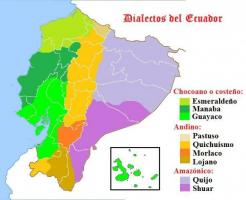Pseudocopulative or semipredicative verbs
In this video we will discuss pseudocopulative or semipredicative verbs. To understand these verbs we will have to look at the etymology since "pseudo" means "false" and "semi" "means". Therefore, we will be before false copulative or half predicative verbs.
Two aspects will have to be taken into account:
- sometimes the Predicative verbs can function as copulative verbs without being it and, therefore, establish a concordance relationship between attribute and subject. (You can see this in the video examples).
- the verbs like stay, continue, turn, put, continue, result, etc... They are pseudo-copulative or semi-predicative because they can act in a copulative or predicative way (look at the sentences in the video).
Also, I will give you three tricks that will help you to recognize these pseudocopulative or semipredicative verbs:
- they can be used as predicative or copulative.
- if they act as copulatives, they will carry an attribute.
- they may not be substituted for it.
If you want to practice what you have learned in this lesson, you will only have to do the
printable exercises with their solutions that I have left you on the web. I hope they help you understand this complicated concept!


